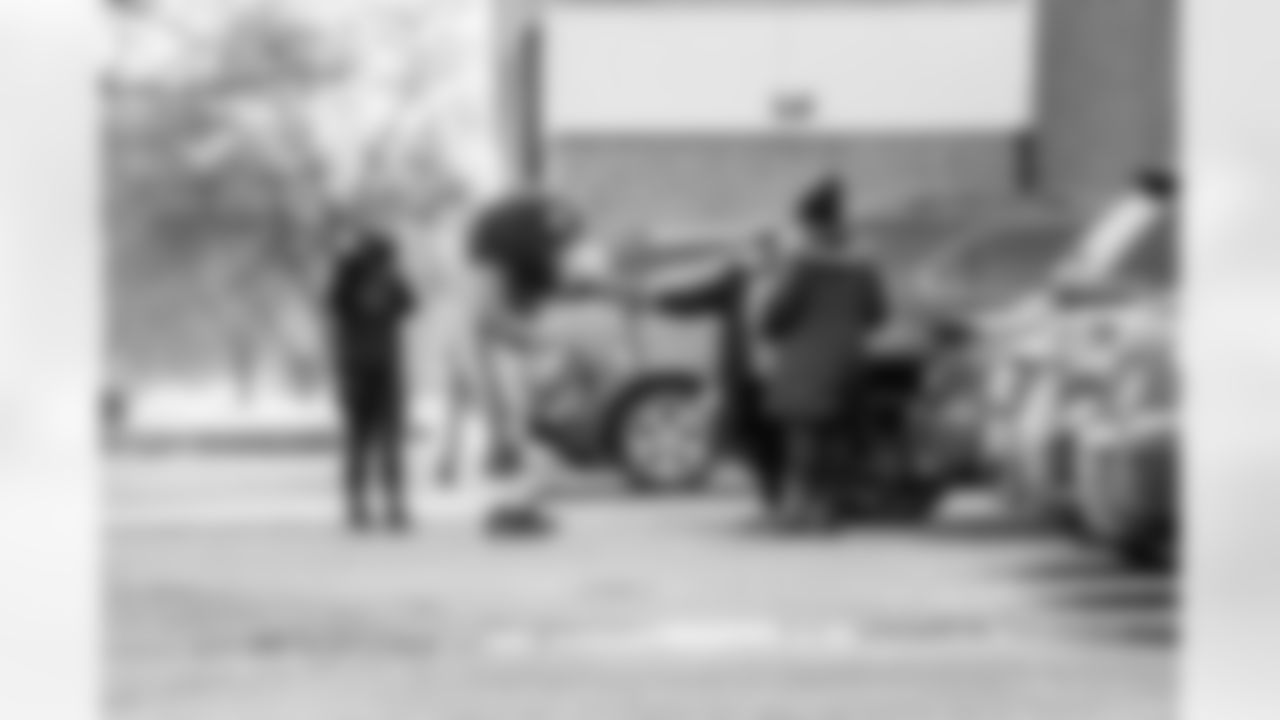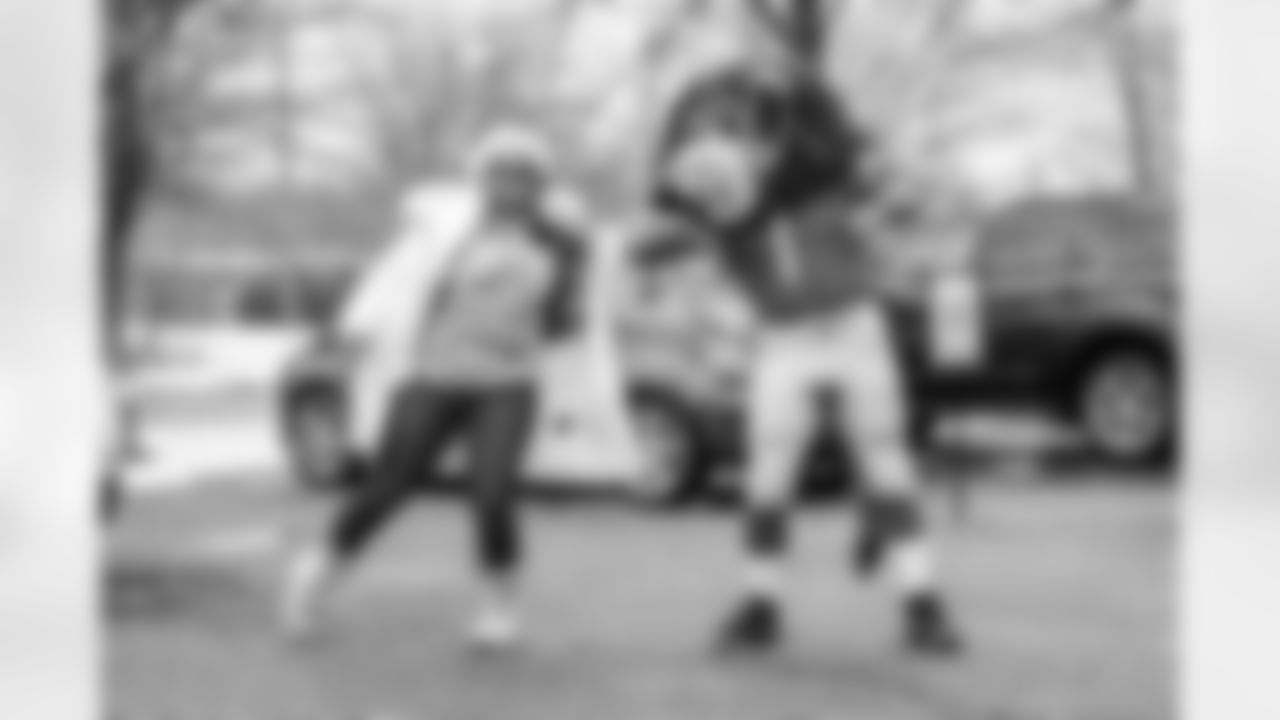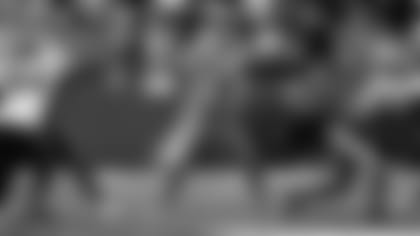Recent history shows that the Detroit Lions can get help for their defense with the seventh pick in the 2021 draft.
The 2016 49ers, 2019 Jaguars and 2020 Panthers all got significant help with players taken with the seventh pick.
However, history also shows that there are no guarantees on defense or any position.
Following is a breakdown of the players drafted seventh overall from 2010 through 2020, with a look at how they fared and how the Lions' pick each year performed compared to the player drafted seventh.
There's also a look at a special player drafted seventh before the 2010 season, and the last four players drafted seventh by the Lions.
2020: Auburn DT Derrick Brown, by Panthers.
Brown was effective as a rookie but not spectacular with two sacks, 12 quarterback hits and 12 tackles for loss. Evidence of his impact up front: Carolina gave up 4.2 yards per carry vs. 5.2 in 2019.
Bottom line: Brown is a solid building block in Carolina, as he would have been in Detroit.
2019: Kentucky LB Josh Allen, by Jaguars.
He had a big rookie season with 10.5 sacks, 11 tackles for loss and 23 QB hits but slipped to 2.5 sacks in 2020 when injures limited him to eight games.
Bottom line: Allen would have been an upgrade for the Lions, but they got it right taking 2020 Pro Bowl TE T.J. Hockenson with the pick after Allen went to Jacksonville.
2018: Wyoming QB Josh Allen, by Bills.
The Bills weren't scared off by Allen's college inaccuracy, as were some teams. The Bills were right in evaluating Allen's potential. His completion rate improved from 52.8 percent to 58.2 and 69.2, and his TD to interception ratio went up from 10-12 to 20-9 to 37-9.
Bottom line: The Lions were not in the market to draft a QB. The Bills reached and brought home a star. With pick 20, the Lions scored with Pro Bowl center Frank Ragnow.
2017: Clemson WR Mike Williams, by Chargers.
After 11 catches as a rookie he improved his totals to 43, 49 and 46 catches, with 10 TDs in 2018 and more than 15 yards per catch each of the last three seasons.
Bottom line: The Lions took LB Jarrad Davis with Pick 21. He showed promise his first two seasons but was mostly a backup on a bad defense in 2020. The Lions could have done better than Davis or Williams.
2016: Oregon DT DeForest Buckner, by 49ers.
He fit well in the 49ers' terrific front line for four seasons before being traded to the Colts in 2021 for a first-round draft pick. In the last three seasons, with Year 5 in Indy, he has sack totals of 12, 7.5 and 9.5 sacks, plus 100 QB hits and 48 tackles for loss for five years.
Bottom line: Buckner, or a player of his skill level, would have been an upgrade for the Lions. No regret for the Lions using the 17th pick on Ohio State OT Taylor Decker, a team leader and QB protector.
2015: West Virginia WR Kevin White, by Bears.
Injuries have wrecked his career. Limited to 16 games, he has 48 catches and no TDs.
Bottom line: The Lions took Duke G Laken Tomlinson 28th overall. He played all 32 games with 24 starts before being traded in 2017 to the 49ers, where he's started 63 of 64 games. The Lions were happy with the pick and the trade. The 49ers were even happier, getting a full-time starter for a low draft pick.
2014: Texas A&M WR Mike Evans, by Bucs.
The Bucs hit it big. Evans has gone over the 1,000-yard receiving mark all seven seasons, with 532 caches, 61 TDs and a career high of 13 in 2020 to make QB Tom Brady feel – and act – young again throwing to a three-time Pro Bowl receiver.
Bottom line: Evans would have been part of a superstar trio in Detroit with Calvin Johnson and Golden Tate. Three picks after he went to the Bucs, the Lions took North Carolina TE Eric Ebron.
2013: North Carolina G Jonathan Cooper, by Cardinals.
Personal issues derailed his career. He played 46 games with 31 starts for four teams.
Bottom line: The Lions got a premier defensive end in Ezekiel Ansah with the fifth pick. He had 48 sacks in six years in Detroit, with a high of 14.5 in 2015. Injuries shortened his stay in Detroit.
2012: Alabama DB Mark Barron, by Bucs.
Barron was an effective player, but never a star. He had three years with the Bus, five with the Rams and one with the Steelers.
Bottom line: Coming off a 10-6 season, the Lions drafted Iowa OT Riley Reiff 23rd. After spot starting as a rookie, Reiff's been an eight-year starter for the Lions and Vikings. The Lions' pick at 23 outperformed the Bucs' pick at seven.
2011: Missouri DE Aldon Smith, by 49ers.
An elite pass rusher, Smith had 42.5 sacks his first three seasons. Personal and legal problems shattered his career. He was suspended from football for four seasons (2016-19). He returned in 2020 with Dallas and had five sacks.
Bottom line: In a draft filled with defensive stars – Von Miller, J.J. Watt, Patrick Peterson, Robert Quinn and Ryan Kerrigan, Smith would have fit the Lions without his problems. With the 13th pick, the Lions took Auburn defensive lineman Nick Fairley, who didn't produce up to his potential.
2010: Florida CB Joe Haden, by Browns.
The Browns got this one right – a good, solid defender who made one Pro Bowl in seven seasons with the Browns and one in four with the Steelers.
Bottom line: Haden would have been a good pick for the Lions, but they'd already taken DT Ndamukong Suh second overall. He dominated in five seasons with the Lions, making four Pro Bowls and All Pro three times. Suh departed to Miami as a free agent in 2015 and is still going strong with the Bucs. The only regret for the Lions was not keeping Suh longer. An all-time franchise great.
Special player at No. 7:
2007: Oklahoma RB Adrian Peterson, by Vikings.
In a draft loaded with future Hall of Famers, the Vikings got one of the best in Peterson. He played his 14th season in Detroit and was a positive influence on the young players and a force in short-yardage.
Bottom line: Peterson would have filled a void that the Lions are still looking to fill. With the second pick the Lions drafted WR Calvin Johnson, a finalist in the 2021 class of candidates for the Pro Football Hall of Fame.
Four most recent Lions drafted seventh:
2004: Texas WR Roy Williams.
Seven of the first eight players drafted made at least one Pro Bowl, and Williams was one of them. He was a good player who could have been better.
Williams made the Pro Bowl in 2007 with 82 catches for 1,319 yards and seven TDs. He had 23 TD catches in his first three seasons.
Williams wanted to go back to Texas, and the Lions accommodated him by trading him to the Cowboys midway through the 2008 season.
His best days were in Detroit. He had 262 catches and 29 TDs in five seasons with the Lions and 131 catches and 15 TDs in three seasons with the Cowboys and one with the Bears.
1990: Houston QB Andre Ware.
It seemed like a perfect fit when Ware's name was called on draft day, and he responded by shouting "Run 'N Shoot." That's the offense he'd run in winning the Heisman Trophy in 1989, and it's what the Lions had installed in 1989.
Ware had problems with accuracy. He played 14 games with five starts, with five TD passes against eight interceptions. He never played again in the NFL after the 1993 season, his last as a Lion.
View photos of the Detroit Lions, Comerica Bank and the United Way for Southeastern Michigan partnering for the annual Hometown Huddle volunteer event benefitting the Detroit Public Schools Community District.



























1987: Washington DE Reggie Rogers.
The Lions thought so highly of Rogers that they gave him No. 60 – worn by Bubba Baker, the best pass rusher in franchise history.
It was a public relations gambit that fell flat.
Rogers never lived up to the hype or his draft position. He had numerous personal problems. His stay in Detroit ended after the 1988 season, when he was involved in a car crash in which three people in the other vehicle died.
Rogers played 11 games as a Lion and had one sack. He played briefly for Buffalo and Tampa Bay after leaving the Lions. Rogers passed away in 2013.
1967: UCLA RB Mel Farr.
Farr was the first player taken in a terrific draft for the Lions. Hall of Fame cornerback Lem Barney followed him in the second round, and the third round brought linebacker Paul Naumoff, who played 12 seasons as a Lion.
Farr broke in with a big rookie season – 860 yards rushing, the first of two Pro Bowl appearances and Offensive Rookie of the Year Award.
Injuries cut into Farr's career, but he was productive when healthy. He rushed for 3,072 yards in 60 games. Farr retired after the 1973 season.
He was a prominent businessman in Metro Detroit until his death in 2015.














